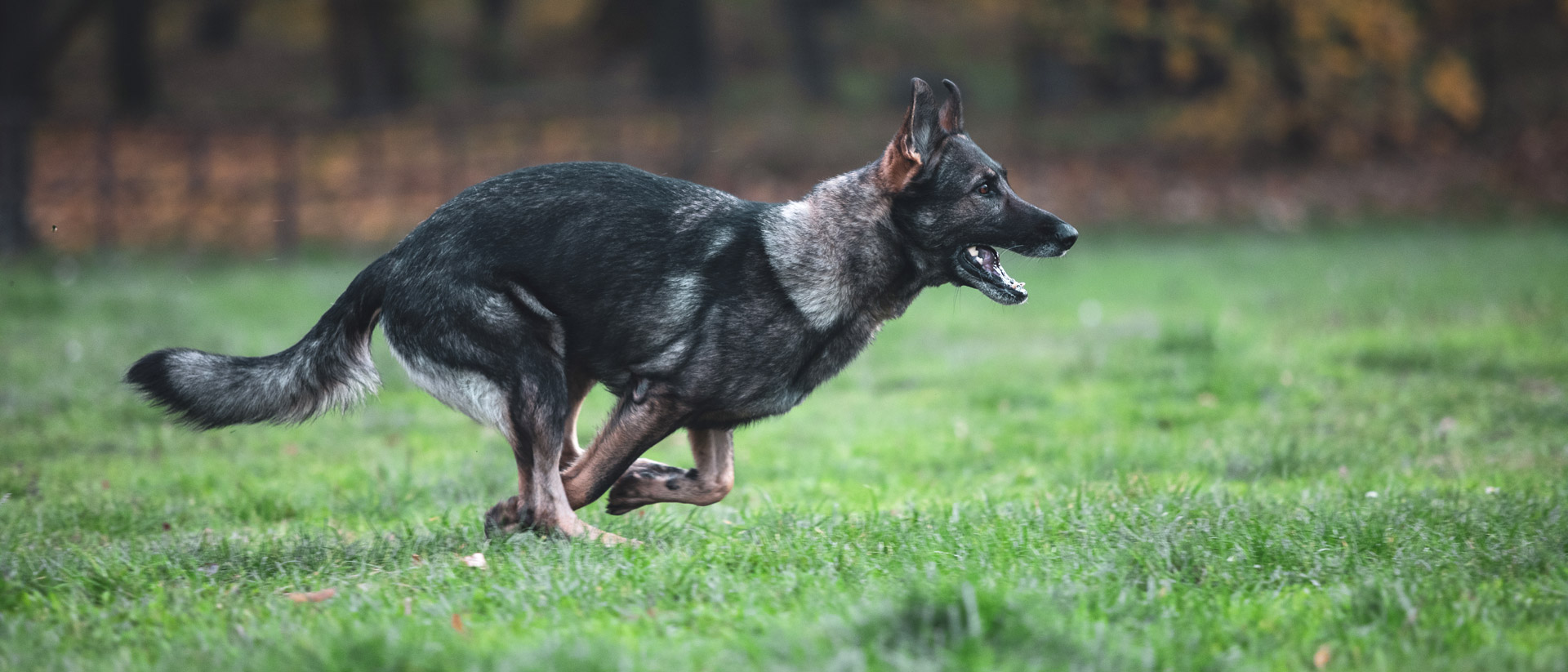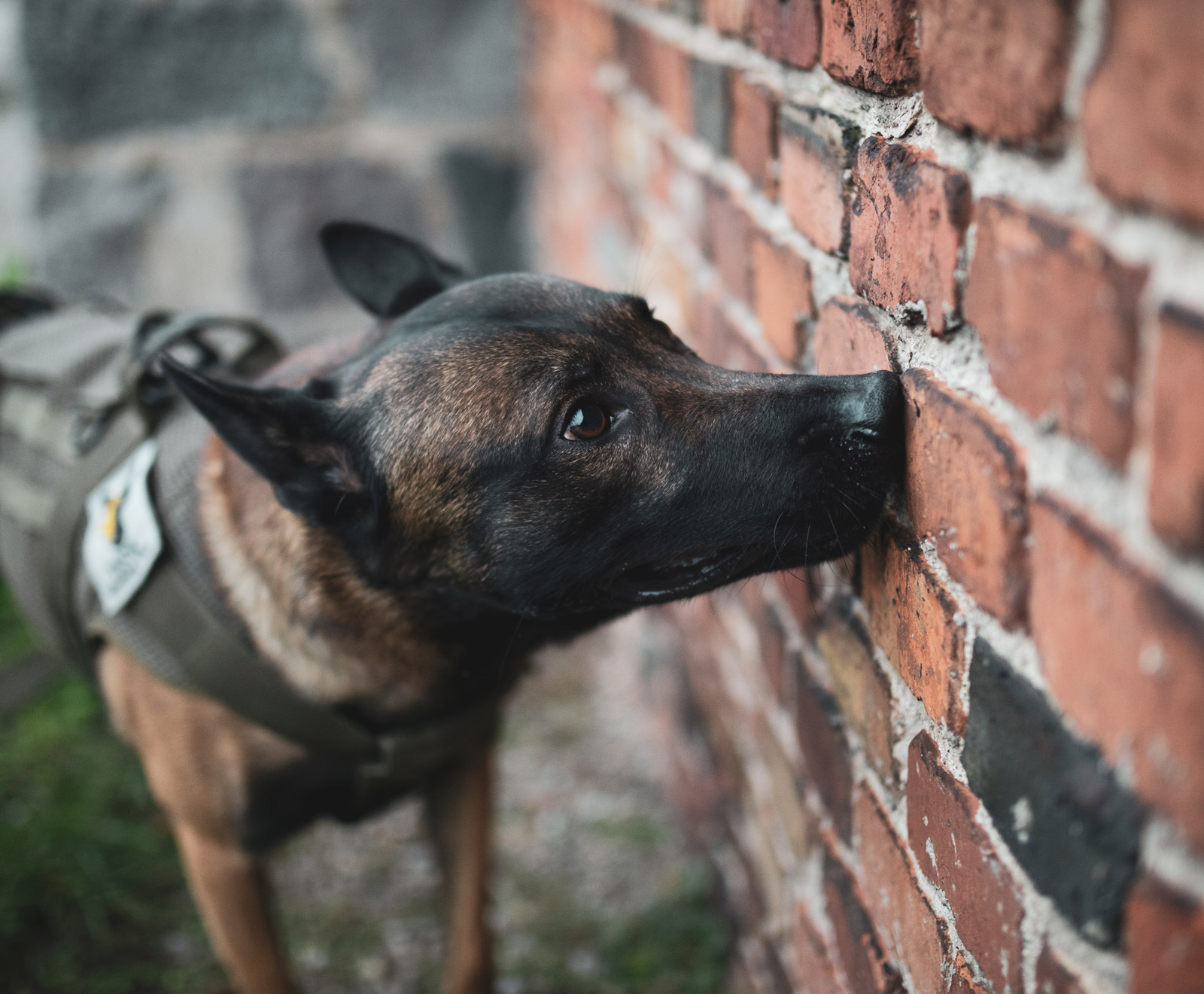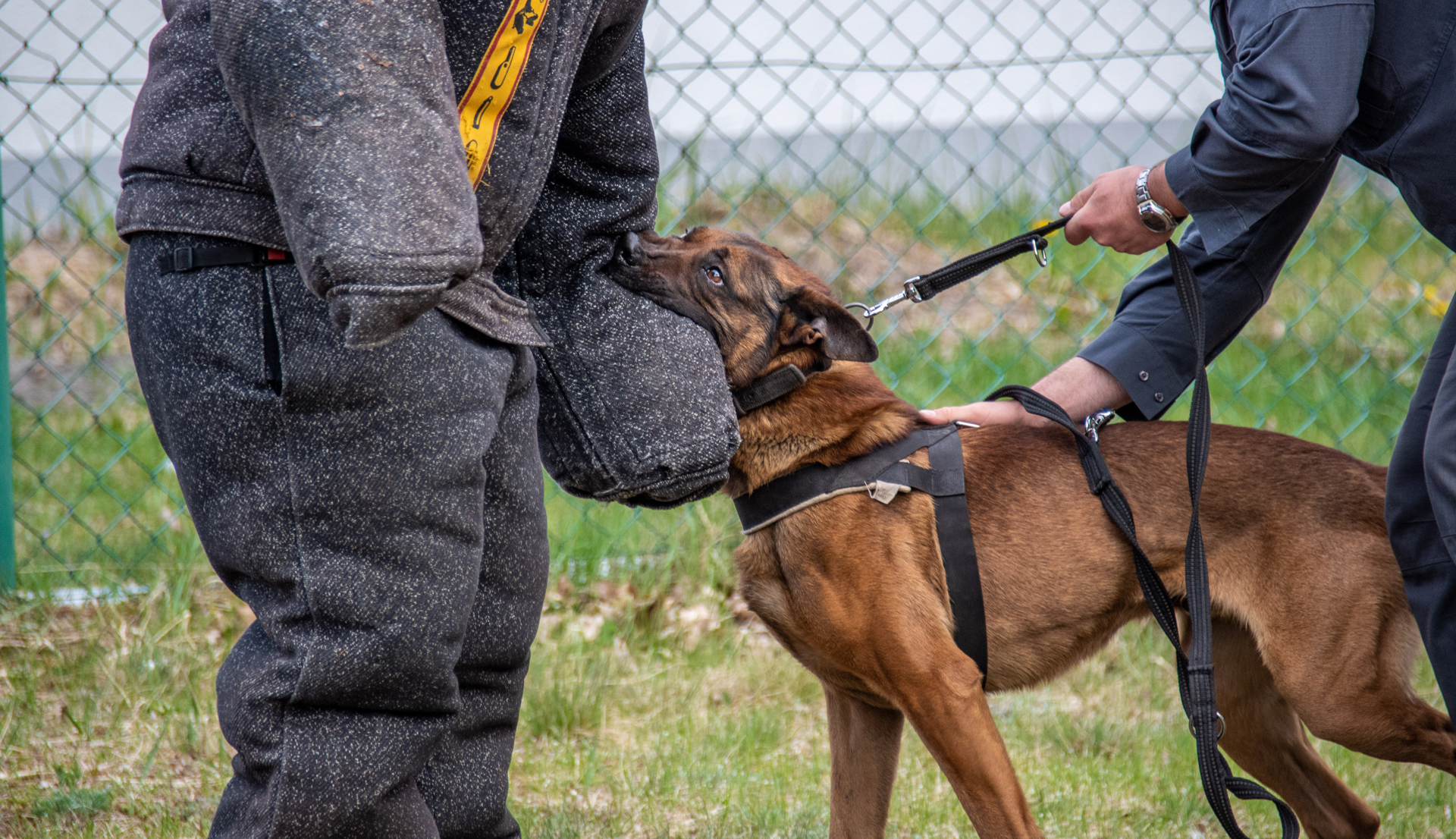NOSE WORK instructor course with elements of utility detection (online)
Nose Work can be trained by any person and any dog, regardless of age, physical condition,
weight, breed or even physical limitations. It is an activity literally for everyone.
In addition, it does not require a lot of money or training grounds. Nose Work can be
practised everyday and in almost any conditions. What's more, it requires no obedience
training.
Advantages of Nose Work include:
- psychical effort in line with a dog’s nature - Nose Work uses large reserves of dog’s energy
- confidence building in shy and timid dogs
- redirecting the energy of hyper-active dogs to calming Nose Work
- teaching your dog to concentrate
- learning to communicate with your dog and read his body language
- building a bond between a handler and a dog
- activating and motivating dog owners to spend time actively and work with their dogs
- an excellent way of working with aggressive and reactive dogs - Nose Work is trained individually
Nose Work - sport, work and leisure
Nose Work training gives us an opportunity to challenge others in competitions, contests,
national and international examinations. However, it is not just a discipline for handlers keen
on sport. Nose Work also has a number of benefits when used as a leisure activity in
everyday life or when working with dogs’ behavioral problems (anxious, aggressive dogs) or
with shelter dogs.
About the course:
About the course:
Duration of the course is assumed to last 4 months (online classes). During the course there
will be a minimum of 4 course webinars (discussion of exercises, problem solving) and
lectures in the form of webinars on theoretical issues.
Some additional practical classes in the Tricity area in Poland may be organised for those who wish to practise more.
Classes include learning how to train dogs to detect scents of eucalyptus, bay leaf and lavender according to the regulations of the Svenska Nose Work Klubben and the Nose Work Club Poland. The course will end with an examination and certification by an external examiner from Denmark or another country working according to the same standards.
The course is led by Jagna Gill - certified Nose Work instructor (certified by Svenska Nose Work Klubben), a certified handler and utility scent detection instructor certified by the Scandinavian Working Dog Institute, dog therapy instructor, handler of two rescue dogs, two dogs for remote scent detection, a dual purpose dog (defence/detection) and a dog therapist; owner of TWD Group and founder of the THOR Working Dogs project; president of IRMA Foundation - Dogs in Human Service. She specialises in service dogs scent detection and directionals.
Cel kursu: Uczestnik szkolenia będzie w stanie samodzielnie prowadzić szkolenia i kursy dla właścicieli psów z zakresu sportowego Nose Work wg regulaminów Svenska Nose Work Klubben oraz Nose Work Club Polska.
Please note: Completing the course according to the regulations of the Nose Work Club
Poland does not exclude you from practising Nose Work later, according to other regulations
or using other scents. We teach a scent detection system, further practice with other scents
will not pose any problems.
Participants of the course can attend classes without a dog, however, they must be able to
train one dog (by themselves) and two handler + dog teams in between the classes.
Training plan:
Training plan:
A lot of theoretical and practical activities and readings as homework. All of this takes place
on a course internet platform by sharing readings, instructional videos, assignments and
receiving full feedback. Constant supervision by the instructor and a possibility of face-to-
face consultations.
The course will end with an examination and certification by an examination board made up of foreign instructors. In addition, the course will cover aspects of professional utility scent detection and odour theory.
Participants during the course are expected to complete homework and share their progress on a course internet platform and via a private group on FB, which will remain available to participants once the course has finished.
Część 1: Szkolenie własnego psa w Nose Work, różne modele pracy oraz sposoby skłonienia psa do pracy węchowej, wyszukiwanie zapachów w pomieszczeniach zamkniętych, wyszukiwanie zapachów w pojemnikach, udział w zajęciach praktycznych z własnym psem, nagradzanie psa, połączenie teorii z praktyką.
Część 2: Szkolenie instruktorów w zakresie nauczania psów pracy w Nose Work, omówienie ekwipunku kursanta, przygotowywanie próbek zapachowych, protokoły – ich prowadzenie i wypełnianie, przeszukiwanie, oznaczanie odnalezionego zapachu, wyszukiwanie zapachów w pojazdach, na zewnątrz budynków, zróżnicowanie wysokości umieszczonych próbek zapachowych, dodatkowe skrytki zapachowe, skrytki kombinowane, przeprowadzanie prób zapachowych, zmysł węchu, środowisko, ćwiczenia w zachowaniu równowagi, zasady zawodów, połączenie teorii z praktyką.
Część 3: Powtórzenie materiału z części pierwszej i drugiej kursu, ćwiczenia praktyczne, przygotowanie do egzaminu i certyfikacji.
Część 4: Egzamin i certyfikacja – test praktyczny: pedagogika, plany ćwiczeń, prowadzenie części szkolenia dla 2 różnych grup kursantów – grupy dla początkujących i zaawansowanych. Próba zapachowa z własnym psem oraz konkurs – zawody Nose Work w 4 różnych kategoriach: wyszukiwanie zapachu w pomieszczeniach, na zewnątrz, w pojemnikach i w pojazdach. Egzamin teoretyczny i praktyczny.
The course is conducted in cooperation with a non-public training centre Silva Lupus.
Course graduates will receive:
- Nose Work Instructor certificate (issued by IRMA Foundation and recognised by the Nose
Work Club Poland);
- a certificate of completion of the course (issued by IRMA Foundation);
- a certificate of completion of the NOSE WORK INSTRUCTOR course in accordance with
the Regulation of the Polish Minister of National Education of 18 August 2017 on continuing
education in non-formal educational institutions (issued by Silva Lupus).
Zakres szkolenia:
The course will include elements of History of Nose Work, regulations on currently used
scents, competitions and examinations, scent sample protocols and results, jury protocols,
imprinting of scent (advantages and disadvantages of different teaching methods), scents
combinations, contaminations, scent composition, scents sources, concentration in olfactory
work, distractions, sniffing strategies, scent location (different altitudes), detection,
rewarding, canine body language and dog communication, on-leash and off-leash work,
human body language, reactive dogs vs. Nose Work, classical and conditional learning,
motivation vs. learning, reinforcement, scent preparation, elementary pedagogy, training
protocols and more.
Scope of the exam and certification:
The certification will consist of a theoretical (written) and a practical part. The practical exam
will verify an ability to teach beginners correctly and effectively according to the curriculum of
the course. The ability to spot errors and solve problems that occur in a training will be also
tested.
Videos, photos and multimedia presentations will be used in the course. The course includes theoretical and practical classes with your own dog. Nose Work is a cynology sport activity based on a olfactory work. It consists primarily of scent detection and can be trained by all dogs - regardless of breed, age, experience or character traits. What makes Nose Work different from professional scent detection is that it can be trained by any human and any dog.
APPLICATIONS:
For more information and the upcoming course starting dates, please contact us via the application form.
Payment can be divided in instalments.








